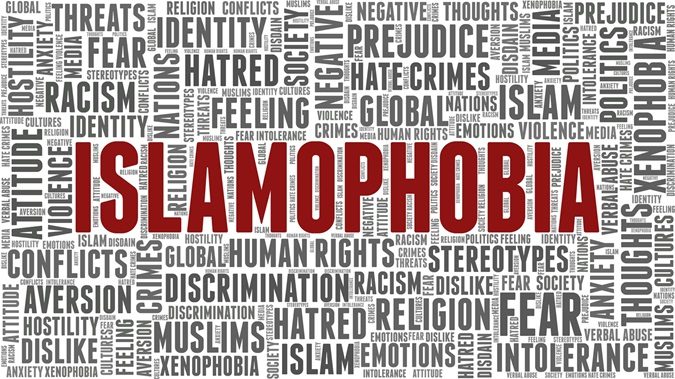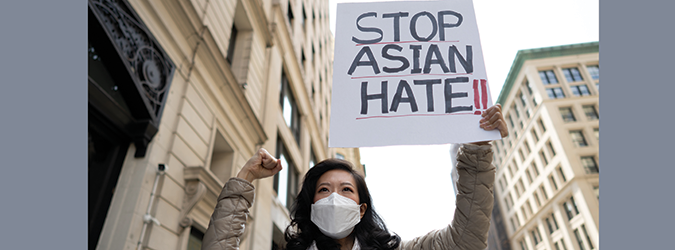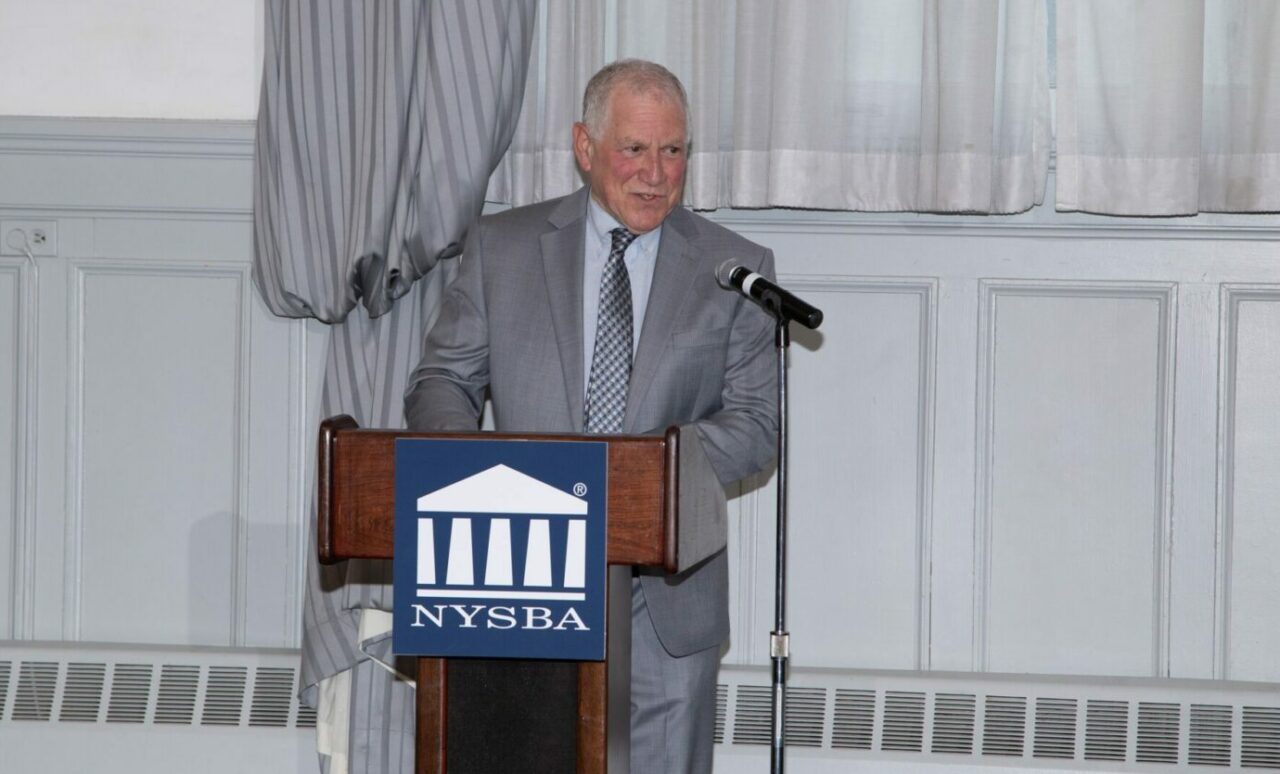Islamophobia Surges in the U.S. Due to Global and National Tensions
12.12.2023

It is half a world away, but the conflict in the Middle East has led to a dramatic increase in hate crimes against Muslims in the United States, and state and national leaders are calling for swift action to reverse the surge.
Two of the attacks – which are being investigated as hate crimes – have led to worldwide condemnation.
In a Chicago suburb, landlord Joseph Czuba stabbed 6-year-old Wadea Al-Fayoume 26 times, killing him. His mother, 32-year-old Hanaan Shaheen, said Czuba was angry at her for the Oct. 7 Hamas attack that killed 1,200 people in Israel.
Weeks later, 48-year-old Jason James Eaton allegedly shot three Palestinian-American college students – Hisham Awartani, Kinnan Abdel Hamid and Tahseen Ahmed – in Burlington, Vermont. The students were speaking English and Arabic and two of them were wearing the kaffiyeh, a traditional Middle Eastern headdress often associated with Palestine. Awartani is now paralyzed from the chest down.
These are just two of the tragedies that authorities believe are part of a major surge in Islamophobic and anti-Arab hate since the Hamas terrorist attack on Israel and the subsequent war. Between Oct. 7 and Nov. 4, the Council on American-Islamic Relations received 1,283 requests for help and reports of bias – while in an average 29-day period in 2022, the organization received only 406 complaints.
“American Muslims are facing the largest wave of Islamophobic bias that we have documented since then-candidate Donald Trump’s Muslim Ban announcement in December 2015. Political leaders, corporations, media outlets, civic organizations and others all have a role to play in ending this surge in bigotry,” CAIR Research and Advocacy Director Corey Saylor said in a statement.
This surge in anti-Arab and Islamophobic hate reverses what had been a decline in the number of reported incidents. According to FBI data, anti-Muslim hate crimes had decreased overall from a peak of 310 incidents in 2016, falling to 129 in 2020, but increased again for a total of 158 in 2022.
A Historical Perspective on Islamophobia
The terrorist attacks of 9/11 led to a serious increase in Islamophobic and anti-Muslim hate crimes, as well as anti-Arab and anti-Sikh hate crimes. Women who wore the hijab were especially at risk because they were so easily identified as Muslims.
Less than a week after the attacks, then-President George W. Bush visited the Washington Islamic Center and famously said, “Islam is peace” in an attempt to defuse tensions. However, the Patriot Act and the War on Terror that followed framed Muslims as the enemy, which increased Islamophobic attitudes and associated hate crimes.
Sikh men were – and often still are – mistaken for Muslims due to their beards and turbans, especially in the aftermath of the 9/11 attacks. Most infamously, gas station owner Balbir Singh Sodhi was murdered four days after 9/11. His murderer, Frank Silva Roque, targeted Sodhi, a Sikh man who wore a turban.
In 2013, former Executive Director of the Gallup Center for Muslim Studies Dalia Mogahed wrote, “As horrific as the attacks of Sept. 11, 2001, were, the rise and fall (mostly rise) of negative sentiment toward Muslims and Islam in America does not coincide with this or any other Al-Qaeda act of violence. Instead, levels of anti-Muslim sentiment follow trends in domestic U.S. politics, not international terrorism.”
Although Muslims are a quarter of the global population, they are a minority in the United States. They make up 1.3% of the population, or 4.45 million people, according to the 2020 U.S. Religion Census report. While Muslim people have lived in the United States since the American Revolution, the population increased dramatically after the Immigration and Nationality Act of 1965 expanded immigration opportunities.
More than 700,000 Muslims make New York State their home, the largest Muslim population of any state in the country. New York City is particularly notable for being the home of the most ethnically diverse Muslim population of any city in the world, and the city has seen its share of hate crimes recently.
The New York Police Department has noted this increase, including an incident in which a man pulled off the hijab of a 16-year-old girl riding the subway. The NYPD logged seven anti-Muslim motivated complaints for the first nine months of 2023, and then five in the three weeks immediately following the Hamas attacks on Oct. 7.
On a national level, 152 anti-Muslim, 105 anti-Arab and 185 anti-Sikh hate crimes were reported to the FBI by law enforcement agencies in 2021. This marks an increase of 38%, 48% and 108% respectively over the previous year.
Even these numbers do not paint an accurate picture of hate crimes because the FBI did not receive data from 6,929 of 18,812 law enforcement agencies. Underreporting to law enforcement is also an issue because many victims are hesitant to come forward or fear that police departments will not take them seriously.
Governments Act Against Hate
According to data tracked by the New York State Division of Homeland Security and Emergency Services, there has been a 417% increase in online hate speech against Muslim communities since the war started last month.
Citing that statistic and a similar increase in antisemitism, Gov. Kathy Hochul sent a letter in November to four social media companies – Meta (which owns Facebook and Instagram), Google (which owns YouTube), TikTok, and X, formerly known as Twitter – demanding that the social media platforms improve their moderation policies, add more staff and resources for content moderation, and be more transparent about how hate speech spreads on their platforms.
“Users across your platforms have reported being flooded with hateful and threatening messages and comments, and content promoting explicit calls for violence against Jewish, Muslim, and Arab people have proliferated – in some cases being shared tens of thousands of times,” the letter reads. “And while the most brazen messages have in many cases been removed, less overt content and coded messages that nonetheless carry violent and threatening meanings persist. This is not simply a concern about the quality of our online discourse. Studies have shown that online hate speech contributes to real-world violence.”
On that same day, Hochul also announced that $3 million would be allocated to expand terrorism threat assessments for colleges and universities in New York State, and that a media literacy toolkit would be distributed to educators and students to combat misinformation.
On the national level, President Biden announced on Nov. 1 that his administration is working on a national strategy to counter Islamophobia.
“We look forward to continuing our work with community leaders, advocates, members of Congress, and more to develop the strategy – which will be a joint effort led by the Domestic Policy Council and the National Security Council – and counter the scourge of Islamophobia and hate in all its forms,” White House Press Secretary Karine Jean-Pierre said in a statement. “For too long, Muslims in America, and those perceived to be Muslim, such as Arabs and Sikhs, have endured a disproportionate number of hate-fueled attacks and other discriminatory incidents.”
On Nov. 14, Biden’s administration released a list of actions and best practices it is taking to address the rise of Islamophobia and antisemitism, including releasing resources for schools and updated resources for law enforcement to respond to hate crimes.
On a societal level, measures to fight Islamophobic attitudes are similar to those needed to fight other forms of prejudice – outreach, education and anti-bias training.
Islamophobia endangers not only Muslims, but society at large. Research from the Institute for Social Policy and Understanding has found that people who believe anti-Muslim tropes are more likely to be racist against other groups as well. The research also found that people embracing Islamophobia are likely to endorse authoritarian governments and be willing to accept fewer democratic freedoms in an attempt to protect against perceived terrorist threats.
“In short,” Mogahed wrote, “the propagation of Islamophobia undermines the very foundation of a free society; a dissenting and well-informed citizenry.”






